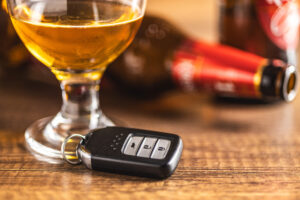When you’re summoned for a DMV hearing due to a DUI charge, it’s essential to understand what lies ahead and how to prepare effectively. This hearing plays a crucial role in determining whether you’ll retain your driving privileges, hence understanding its nuances is critical. Contact Law Office of Michael L. Fell at (949) 585-9055 right away if you require a free legal consultation with a DUI defense attorney.
The DMV Hearing Landscape
A DMV hearing is an administrative procedure conducted by the Department of Motor Vehicles to ascertain whether your driver's license should be suspended following a DUI arrest. It's a separate entity from the criminal justice system, though it pertains to the same incident. Representation by an attorney is your right, though it comes at your personal cost.
The Setting and Conduct of the Hearing
Unlike a traditional courtroom, the hearing takes place in a DMV office or via telephone, led by a DMV employee rather than a judge. The hearing officer, while specially trained, typically does not possess a law degree.
Testimonies and Evidence Presentation
At the outset, the arresting officer presents evidence, which usually includes the traffic stop's basis, your interaction with the officer, field sobriety test results, and any chemical test findings such as BAC levels. You have the right to cross-examine the officer and any other witnesses, which is often done through your defense attorney.
Your Defense
Following the prosecution's presentation, it's your turn to mount a defense. You can question the evidence presented, call upon witnesses, and testify on your own behalf. Defense strategies may include questioning the probable cause for the stop, the handling of the observation period before a breathalyzer, or the consequences of refusing chemical tests.
Decision Criteria
The DMV officer’s verdict hinges on the preponderance of evidence—a lesser standard than the criminal court's "beyond a reasonable doubt." If the evidence suggests it's more likely than not that you were under the influence, the officer may rule against you.
Potential Outcomes
A favorable DMV hearing result means your driving privileges are intact, which can be a significant indicator of the strength of the associated criminal case. However, a win at the DMV hearing doesn't automatically affect the criminal proceedings, which are determined separately.
Implications of Losing the DMV Hearing
Should the decision not be in your favor, a license suspension typically ensues. The DMV's authority is limited to this action; they cannot levy fines or impose jail time. The suspension's duration is contingent upon the case details and your previous driving record. You retain the right to appeal the DMV's decision, with potential avenues including court appeals or administrative reviews.
The DMV Hearing in California
In California, this process closely mirrors that of other states, with specific nuances like the 'APS hearing.' Following a DUI arrest in California, your license is temporarily replaced with a Notice of Suspension. You must request a DMV hearing within ten days to avoid automatic suspension post the temporary license period.
License Suspension Details
The duration of a California license suspension varies with your driving history and the specifics of the DUI charge, ranging from several months to several years. Options to reduce this period include the installation of an ignition interlock device (IID) or obtaining a restricted license.
The Role of Legal Assistance
It's strongly advised to engage with a DUI attorney from a reputable firm like Law Office of Michael L. Fell (949) 585-9055 to navigate the complexities of a DMV hearing. With professional legal assistance, you're better positioned to challenge the suspension of your driving privileges and strategize for the concurrent criminal proceedings.


